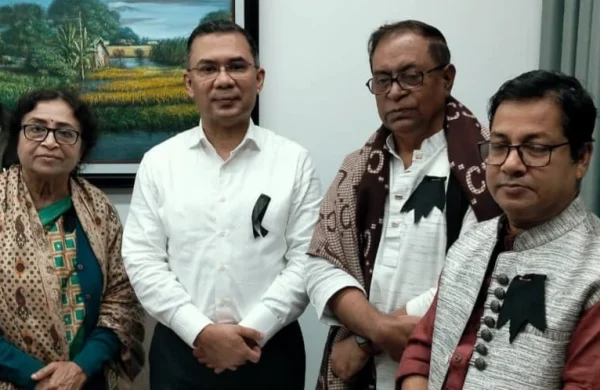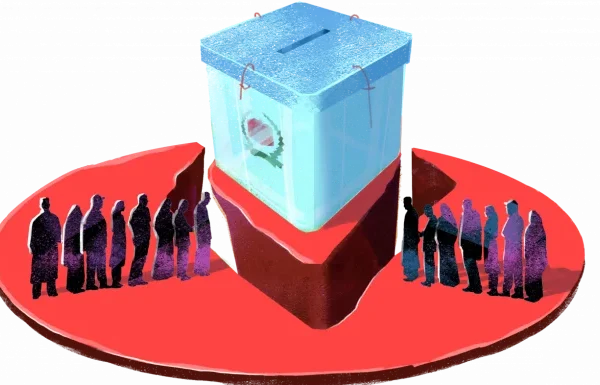How Bollywood movies recover money when they flop
- Update Time : Monday, September 12, 2022

News Desk:
This year, there have been only three films that have had a successful run at the box office, starting with Gangubai Kathiawadi, followed by The Kashmir Files, and finally Bhool Bhulaiyaa 2.
What happened to other movies at the box office tells the story of a bigger issue at hand. Films flopping, one after another, means more money leaking out of the industry than it is earning. Today we try to understand what happens to investors, filmmakers, actors and exhibitors and how they sustain in the given situation.
Recovering money from selling rights:
Even if a film fails at the box office, the makers manage to recover the base cost of the movie. Film trade expert Girish Johar explains how.
According to Johar, most of the money is recovered from selling digital, satellite, music rights. He said, “How a film earns money beyond the ticket sales is by selling the film’s digital, satellite and music rights. Many makers also earn from rebates they get by shooting abroad, for example by shooting in London. Next comes the worldwide box office. Then there are tertiary rights that the producer sells, for example, remake or prequel/sequel rights, dubbing rights, etc. But it all depends on the performance of the film. If the movie does well, then all these rights can get monetized. If not, it all comes crashing down.”
Film producer Anand Pandit, who last backed Amitabh Bachchan and Emraan Hashmi’s Chehre, remarked that every person deals with losses differently, and not all the money that is lost is always recovered. He gives an example of his film, and said, “Every producer will answer this question differently because in each case, the circumstances are different. My Gujarati movie Fakt Mahilao Maate for instance opened to a bumper response and as for big films failing at the box office, there are no constants in cinema because there are so many variables in the process of filmmaking. Failure and success are a part of this business and every Friday springs a new surprise.”
Pandit also mentioned that not all losses are recoverable, but selling rights do help producers cover up the base cost to some extent. He said, “Not all losses are recoverable but there are instances when films that have failed in India have done exceedingly well in overseas markets and the revenue earned from selling OTT and satellite rights also help producers to recover some percentage of the costs.”
How important are box office numbers:
If filmmakers recover their money from selling OTT, satellite and music rights, how much do ticket sales matter? According to Johar, ticket sales is of utmost importance in the business of making films as 50-60% revenue comes from box office. He said, “Traditionally box office constitutes anywhere around 50-60% of the entire revenue of the film, unless the movie is entirely commissioned or fully acquired as an OTT release, where the OTT platforms buy out the film.”
Johar further expressed concern on how films failing at the box office is affecting the entertainment industry.
He said, “We have to acknowledge that losses are growing with every film. And, with whatever losses incurred, we are pushing the money out of the system. The money is no longer within the system. If a film does well at the box office, then the exhibitors earn, the distributors earn, the producers earn and if there is percentage sharing, then the actors earn as well. But because of the bad performance of films, that channel is broken, and losses are becoming heavier every passing day. Indirectly, over a period of time, it affects the cash flow of the fraternity. With big films flopping, we have more than 1000 crore losses already this year. To recover this kind of money, films have to outperform three-four times more than usual.”
Exhibitors are the real losers:
While filmmakers and actors have their ways of recovering their costs, exhibitors and distributors, on the other hand, lose more with every movie that flops. Film exhibitor Akshay Rathi throws light on the current situation of most exhibitors in India today. He said, “For exhibitors, along with ticket sales, the other income comes from food and beverages. But exhibitors have to also maintain their theatres, projectors, etc and that cost should be lower than the income generated from movie ticket sales.”
According to Rathi, post Kartik Aaryan’s Bhool Bhulaiyaa 2, there has not been a single hit that attracts cinegoers to cinema halls, and that’s a red flag. He said, “But today, with ticket sales being low and films not doing well, other costs have gone up, and we’re incurring big losses. This year, since Bhool Bhulaiyaa 2 came to an end, at least, in the Hindi film fraternity, no other film has done well.”
Actor fees, profit sharing and compensation:
When we talk about actors, one of the big conversations is about their fees. How much do they charge? Do they indulge in profit sharing? Giril Johar explained, “Actors are broadly categorised into those who take charge a fixed fee and those who are into profit sharing. Percentage sharing comes to only grade A actors who have performed in the past and have a standing. A producer will not give a percentage to a young budding actor, he’d rather give him a small fee.”
On being asked if actors really do compensate exhibitors when their films don’t work, Rathi said, “It happens in very few cases. Top actors like Shah Rukh Khan, Rajinikanth to redeem their superstardom and to make sure that the value chain associated with their films don’t lose money, do give back to the exhibitors and distributors but it is very rare.”
Box office remedies:
In times when films are failing at the box office, do we have a definitive remedy for the problem? Anand Pandit opined that controlling the film’s budget can be step number 1 towards a more effective way of making sure that money is not lost. He said, “There is no definite formula to guarantee success and as a producer, all I can do is budget a project smartly, invest in a good story, cut costs wherever necessary and leave no stone unturned to make sure that the cast and crew deliver their best. Yes, it is necessary to evolve with the audience and give them something that will excite them enough to come back to theatres and that will happen sooner than later as our cinema, historically, has evolved to keep up with the times.”
Akshay Rathi, on the other hand, said fixing movie ticket prices in a way that people from all strata can watch film should help. He said, “Our disposable income is not our strength. The mass, the population is our strength. So, rather than trying to get a lot of money from a few, we should look at fixing ticket prices. People from all social strata watch movies, so we need to have a price option that works for all. Many businesses depend, directly or indirectly, on films. Most malls in Mumbai have attached multiplexes, so we have to make sure that everyone is able to watch films. Ticket pricing plays an important role here.If the film is running in a premium place, tickets can be priced accordingly. Same goes for smaller places which cannot give that premium experience of movie watching. So our focus should be on placing and pricing our content in a way which enables people across the board to go watch these movies.”
(Source: The Indian Express)



















